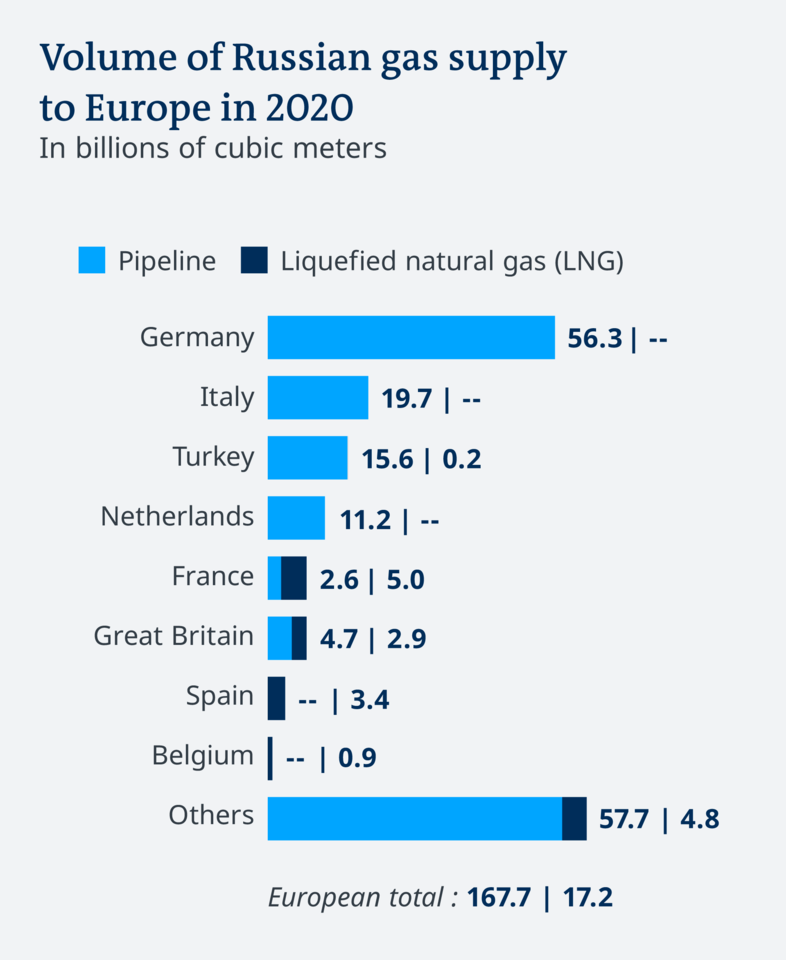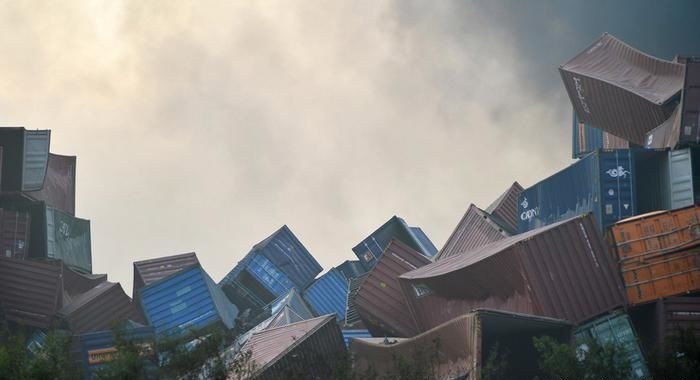
Germany needs a new business model
The first victim of war is the truth they say, and Russia's aggression against Ukraine has proven this once more. At the same time, war can also reveal truths that normally would remain hidden and undiscussed.
One tough truth about the German economy was laid bare by Martin Brudermüller in an interview with German daily Frankfurter Allgemeine Zeitung recently. The head of the world's biggest chemical corporation, German-based BASF, said it was an undeniable fact that "Russian gas is the foundation of German industry's global competitiveness." When asked if Germany wasn't fueling Putin's war with its energy imports from Russia, he said a ban on those imports "will destroy the well-being of Germans."
What Brudermüller described as "a mainstay of Germany's economic strength," has been an essential part of the country's business model and has secured its place as one of the largest exporting nations in the world. The successful business models built by German companies over the past 20 years or so included importing energy below market prices and using it to develop competitive products.
Russia, China and the forces of globalization
In more recent years, China has also contributed significantly to the success story after German corporate heads jumped on the Chinese economic juggernaut much earlier than their rivals elsewhere in the world. By doing so, they were able to secure not only large segments of the Chinese market but at the same time access to China's rare earths and other valuable minerals, too. Small wonder that the German auto giant Volkswagen (VW), for example, currently sells about 40% of its annual production in China.
What's also come in handy for Germany was the worldwide drive for national economies to open themselves up to international competition under the banner of globalization. "Made in Germany" couldn't but shine in a global, free-market environment.
Cheap Russian energy and China's huge markets, coupled with liberalized trade and a strong domestic industry, was the perfect setting for the German economy to race ahead. The results are a massive foreign trade surplus, with exports far surpassing imports, and at the same time, precarious dependencies on Russia and China.

But what has long been a straight road to success for German businesses has suddenly turned into a slippery slope because of the brutal war in Ukraine. The COVID-19 pandemic already came as a sort of harbinger for what many believe is "the end of globalization."
Business leaders are beginning to think seriously about disentangling supply chains that have proven too complex in times of a global pandemic. In Germany, the absence of medical mask production opened the eyes of politicians and the public alike to the fact that essential infrastructure has been completely outsourced to other parts of the world.
"Reshoring" is likely to become the buzzword for the post-COVID era although bringing production home may prove a tall order for most industrialized countries.
'Bipolar' economic world order?
Now, the Ukraine war has added a new spin to the deglobalization story in Germany, heightening the national sense of urgency for the country to wean itself off Russian energy imports, in order not to fuel Putin's aggression any longer.
Newly emerging on the horizon, too, is the question of how to deal with China which is apparently choosing to back the Kremlin. Mind you, this is not happening out of a sudden love for Putin in Beijing, but a shrewd awareness on the part of the Chinese president that huge amounts of Russian energy and raw materials are suddenly up for grabs. What unites Putin and Xi, though, is their joint hatred for Western values such as democracy, freedom of speech, and the rule of law.
So, is the world again splitting up into two antagonistic blocks, or as German economist Gabriel Felbermayr put it, are we witnessing "the end of 30 glorious years of globalization"? Are we headed for a world in which Europe and the United States will be leading the West, while Russia, China, and likely India, which is undecided yet, are joining forces in the Far East?
 Will the multipolar world of globalization come tumbling down and make way for a new East-West standoff?
Will the multipolar world of globalization come tumbling down and make way for a new East-West standoff?
Such a 'bipolar world' would severely undermine the German business model, and there'd be need for a new one. What may help in this is German businesses' undeniable ability to adapt to the vagaries of economic life. Focusing on the opportunities opening up from the much-needed energy transformation and the decarbonization of German industry could pave the way toward the future.
To begin with, Germany must finally get serious about becoming energy-self-sufficient because electricity from renewable sources and hydrogen could provide a competitive advantage.
Economy Minister Robert Habeck wants Germany to have carbon-free electricity within the next 13 years and has declared power generation from solar, wind and biomass to be of "overwhelming public interest." If achieved, it would be a huge leap forward and enable German industry to continue producing at competitive prices, while safeguarding the well-being of Germany in the future.










